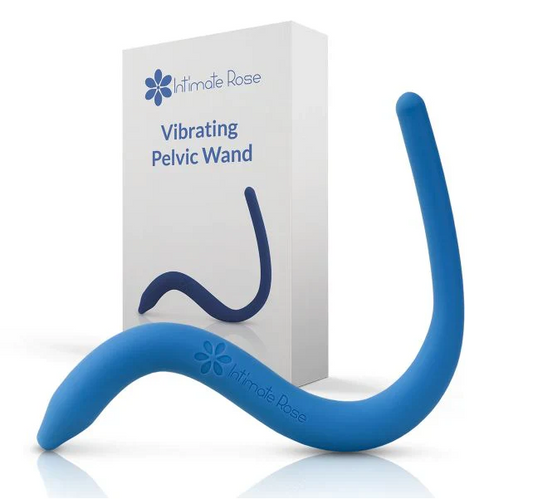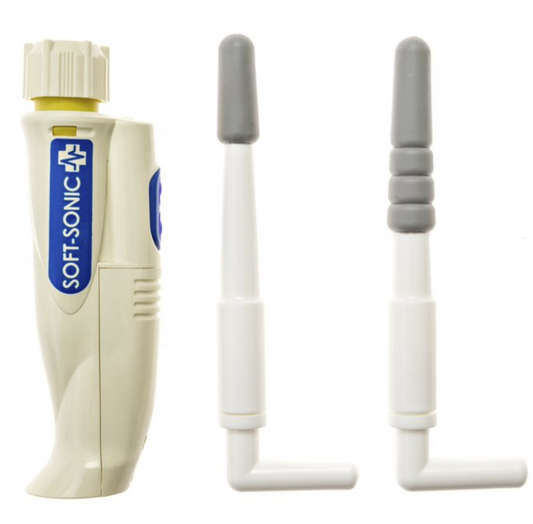
Does an Enlarged Prostate Affect a Man Sexually?
Share
By age 60, about half of men develop benign prostatic hyperplasia (BPH), and nearly 90% are affected by age 85. This common condition can impact daily comfort, intimate relationships, and overall well-being.
Most discussions about prostate health focus on urinary issues such as frequent nighttime trips to the bathroom or a weak stream. Yet sexual health is equally important.
This article highlights how BPH can influence both urinary and sexual function, helping you make informed choices about treatment and maintain a satisfying quality of life.
How an Enlarged Prostate Impacts Your Sex Life
An enlarged prostate rarely causes erectile dysfunction (ED) directly. Instead, the link between BPH and sexual problems is more subtle and complex.
Two main factors explain the connection. The stress of dealing with urinary symptoms can trigger performance anxiety, while many BPH treatments carry sexual side effects. Together, these issues help explain why the two conditions often appear together.
Research in Frontiers in Endocrinology reports that about 70% of men with BPH also experience ED, underscoring how closely prostate health and sexual function are connected.
The 3 Main Sexual Concerns with an Enlarged Prostate
These three key concerns, erectile dysfunction, low libido, and ejaculation problems, often overlap, making it essential to address them together for better sexual health.
Erectile Dysfunction (ED)
When men with BPH develop erectile dysfunction, the cause is often their medication rather than the enlarged prostate itself. Recognizing this distinction is key, as it allows doctors to choose treatments that can address both issues at once.
Many BPH drugs can influence blood flow and nerve signaling, which may disrupt normal erections. Understanding this relationship clarifies why some men notice changes in sexual function soon after beginning therapy.
Low Libido (Decreased Sex Drive)
Certain BPH medications can also affect sexual desire. Drugs like finasteride and dutasteride, both 5-alpha reductase inhibitors, reduce the conversion of testosterone to dihydrotestosterone (DHT). While this helps shrink the prostate, it can also lower hormone levels and dampen libido.
Not everyone experiences this side effect, but when it does occur, it can be especially frustrating. Many men feel torn between controlling urinary symptoms and preserving their sexual vitality.
Ejaculation Problems
Retrograde ejaculation, often called a “dry orgasm”, is one of the most common sexual side effects of BPH treatment. In this condition, semen travels backward into the bladder instead of exiting through the penis during climax.
Alpha blockers such as tamsulosin, which relax muscles around the prostate and bladder neck, are a frequent cause. Studies show it’s the most commonly reported side effect of tamsulosin therapy.
Although the sensation of orgasm usually remains, the lack of visible ejaculation can be unsettling for many men.
The Role of BPH Treatments and Sexual Side Effects
BPH treatments can significantly relieve urinary symptoms, but some options may also impact sexual function, making informed treatment choices especially important.
5-Alpha Reductase Inhibitors
Finasteride and dutasteride gradually shrink the prostate, offering strong long-term relief from urinary symptoms. However, they carry a trade-off that’s important to discuss with your doctor.
Clinical trials report that a small percentage of men experience reduced libido while taking these medications. The encouraging news is that this side effect often lessens over time as the body adapts to the treatment.
Alpha Blockers
These medications relax the smooth muscles of the prostate and bladder neck, delivering relatively quick relief from urinary symptoms. Tamsulosin and alfuzosin are two common examples many men find effective.
However, research shows a noteworthy concern. In one large study, over 40% of men reported reduced sexual function after six months, most often ejaculatory disorders. This highlights the importance of discussing possible side effects with a doctor before starting treatment.
Transurethral Resection of the Prostate (TURP)
TURP remains the gold standard surgical treatment for an enlarged prostate, providing excellent long-term relief from urinary symptoms by removing the excess tissue that blocks urine flow.
However, this procedure carries a notable risk of sexual side effects. Studies show that 50–75% of men experience retrograde ejaculation afterward, highlighting the need to carefully balance the benefits of surgery with its potential impact on sexual function.
Modern & Minimally Invasive Procedures
Fortunately, newer treatment options are emerging that aim to provide effective relief without sacrificing sexual function.
Procedures such as Prostate Artery Embolization (PAE), Rezum Water Vapor Therapy, and UroLift are designed to ease urinary symptoms while reducing the risk of sexual side effects.
These innovative therapies offer hope for men who want to manage BPH symptoms while maintaining their sexual health. They are far less likely to cause retrograde ejaculation and often preserve sexual function more reliably than traditional surgeries.
The Psychological Impact of BPH
Living with BPH can trigger anxiety, stress, and lowered self-confidence, all of which may further affect sexual health and overall well-being.
Anxiety and Performance Issues
The urinary symptoms of BPH create a ripple effect that reaches far beyond the bathroom. Frequent nighttime trips disrupt sleep, leaving men fatigued and irritable, while urgency and unpredictable urges often spark anxiety about being away from a restroom.
This anxiety rarely stays limited to urinary concerns. Research shows that men with more severe symptoms report lower libido and greater difficulty maintaining erections, and this link persists regardless of age.
The findings suggest that the intensity of urinary symptoms can directly undermine sexual confidence and performance.
Relationship Stress
These challenges rarely happen in isolation. Changes in sexual function affect both partners and can strain even the strongest relationships.
Open communication is essential, yet many couples find these conversations difficult to start without guidance.
The combined stress of urinary and sexual symptoms can create a cycle in which anxiety worsens both issues. Breaking that cycle often requires professional support and patience from both partners to rebuild comfort and confidence together.
What Can You Do When Enlarged Prostate Impacts Your Sex Life?
Practical steps like medical consultation, lifestyle changes, and open communication with your partner can help manage BPH symptoms and protect sexual health.
Talk to Your Doctor
This conversation may feel awkward, but it’s a vital part of care. Urologists routinely address sexual health when treating prostate conditions, and sharing your concerns helps them recommend treatments that reflect your priorities.
Remember, sexual side effects aren’t always inevitable or permanent. With open discussion, your doctor can guide you toward options that match your needs and preserve both urinary and sexual well-being.
Explore Prostate Massagers
Prostate massagers are often used to support prostate health and overall wellness. Their main role is to improve circulation and help the gland release built-up fluid, which can ease pressure and reduce swelling.
This “milking” effect may provide short-term relief from urinary issues linked to an enlarged prostate, such as weak flow or difficulty starting and stopping urination.
Improved fluid exchange also boosts blood circulation, which is important for tissue health and comfort.
Beyond these physical benefits, prostate massagers are valued for their impact on sexual function. The prostate, sometimes called the male “G-spot,” can produce stronger, more pleasurable orgasms when stimulated.
For many men, using a massager combines practical relief of prostate discomfort with enhanced intimacy and sexual satisfaction, making it a versatile addition to self-care.

Lifestyle and Self-Care
The American Urological Association recommends lifestyle changes as a first step in managing BPH symptoms, and these adjustments can improve both urinary and sexual health.
Limiting evening fluid intake helps reduce nighttime bathroom trips, while regular exercise boosts circulation and supports sexual function.
A Mayo Clinic study links high red-meat consumption to a greater risk of prostate enlargement, whereas diets rich in vegetables, fruits, and healthy fats may ease symptoms.
Stress management, through meditation, counseling, or other methods, can also break the cycle of anxiety that worsens urinary problems and impacts sexual performance.
Don't Let an Enlarged Prostate Define Your Sex Life
Caring for your prostate doesn’t have to be complicated. With the right tools and supplements, you can ease discomfort, manage symptoms, and support long-term wellness.
For men looking for a non-invasive option, the Sonic Prostate Massager from Prostate Health Store is an excellent option. This top-rated device delivers gentle, deep-tissue massage that is designed to help reduce inflammation and significantly improve localized circulation in the prostate gland.
To go along with physical therapy, the Ultra Prostate Health Formula offers internal support. Made with proven ingredients like saw palmetto, pygeum, and stinging nettle root, it helps maintain healthy prostate function and overall urinary health.
Order today to get these trusted tools and supplements, and start feeling more comfortable and confident!




